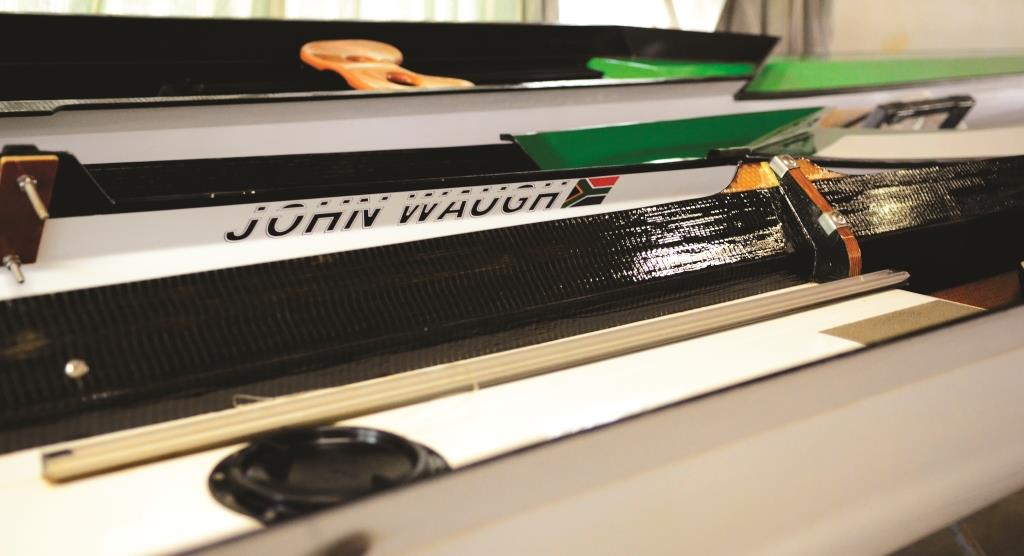In quiet Centurion, near Pretoria, you will find South Africa’s leading rowing boat maker, John Waugh. He lives around the corner from what he calls his office. This is where he and a handful of craftsmen make boats used by everyone from club rowers to Olympic champions.
The workshop stands on a large piece of land. It’s a white house where every room, including the upstairs, has at least one boat in it. The walls and floors are covered with dust, paint, tools and plastic. The raw materials used to make the boats are scattered throughout the house.

Waugh has been building boats here for 34 years.
“I decided to build boats, working at night, as a hobby, just for myself. I started in my garage… 500 hours later I came out with a boat,” says Waugh.
Cape Town-born Waugh took interest in rowing at 20, when he was studying in the then Rhodesia, now Zimbabwe. He graduated in Botany and Zoology and had an MSc in Marine Biology. He moved to Durban, on South Africa’s south coast in KwaZulu-Natal, with his family to work as a scientist. This is where he began fixing boats as hobby. He became a passionate artisan, who eventually quit his job and moved his family to Johannesburg to start his boat-making business.
“It was a total obsession once I started,” says Waugh.
However, it was not easy to find money to get the business running.
“It was quite difficult [getting funding]. I tell my staff that I started with R500 ($56), which is true. Today… materials could cost you R120,000 ($13,500) could be R105,000 ($12,000). It’s quite a lot of money.” says Waugh.
Rowing is not a cheap sport and those who can afford it are a small, privileged group of South Africans. Waugh’s customers are largely South African private schools and universities. These schools can afford to spend anything between R185,000 ($21,000) and R245,000 ($26,000) on a single boat, according to Waugh.

The third boat he made was for rower, Colin Graham, who was a member of South Africa’s national rowing team. The very same team, which won the South African championship in 1980 in Waugh’s boat. And then the orders began to flood in.
Italian boat maker Filippi, the most recognized international boat-maker donated a four skull boat worth close to $18,000 to the South African rowers after they won gold at the London 2012 Olympics. His four skull boats cost anything between $17,000 and $21,000.
Yet the industry is not as steady as one of its finest boats.
“We had one winter where we only had one order for the whole month… One telephone call could bring in R250,000 ($28,000),” says Waugh.
International brands are fierce competition for Waugh as some South African clubs import. Waugh has taught a handful of employees how to build these boats in hopes of keeping the industry afloat. Lucas Muruku, who has been working for Waugh for 20 years, says that it takes five to six years to master boat making. Lucas was working as a gardener, when Waugh asked him to join him in his workshop. He has been with Waugh ever since. But Muruku’s job came under threat when Waugh and his wife were violently attacked in their home and left seriously injured.

“… He was seriously ill, following a violent break-in at his house… He was in hospital for three weeks. We weren’t even sure that he would come back… They nearly killed him,” says Muruku.
After thirty four years of having his hobby as his job, his family thinks it’s time that he retires. For him, it’s not that easy.
“It’s more than just a job, it’s a labor of love,” he says.
Perhaps we’ll see the fruits of his labor gliding on the water for many years to come.
